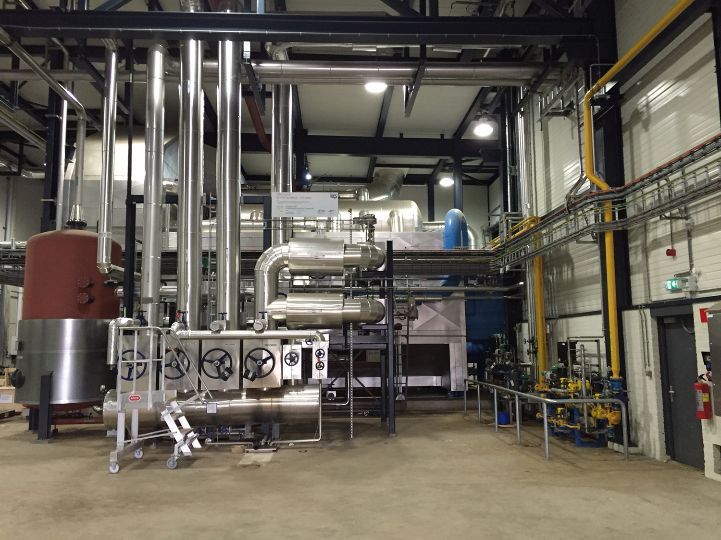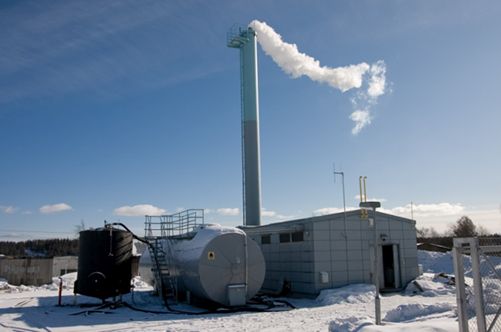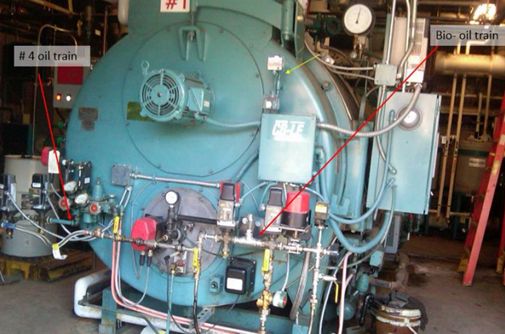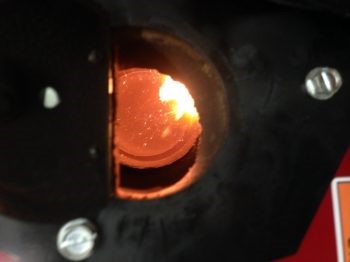Heat and Power
Key Points
- Heat and Power is currently one of the most successful bio-oil applications worldwide
- Commercialized applications are in Finland, the Netherlands, Canada, and the USA
- Each bio-fuel application is tailored to the needs of the end user
- Commercial applications were founded by Fortum, BtG, and Ensyn


Further Reading
- PyNe 41: van de Beld on diesel engine firing of raw bio-oil.
- PyNe 40: Yelvington on bio-oil combustion.
- PyNe 39: Hermanns/Oasmaa/van de Beld on Residential boiler.
- PyNe 37: Butcher on visiting Ensyn’s heating oil application; Ensyn on Youngstown Thermal bio-oil heating.
- PyNe 36: Kyto on bio-oil heating plant
Within the IEA Bioenergy –Intertask project on High temperature heat in industry Task 34 prepared a Case study report on Industrial heat via Fast Pyrolysis
Example Commercial Applications
- Fortum/Valmet: Joensuu CHP Plant with bio-oil co-production
- Ensyn: Youngstown Thermal bio-oil district heating
- EMPYRO: FrieslandCampina industrial process heating with bio-oil
- Ensyn: Memorial Hospital heating with bio-oil

Heat and Power
The use of bio-oils and bio-crudes to replace petroleum heating oils and/or natural gas is currently one of the most successful applications for DTL technologies worldwide.
In this application, the liquefaction process is used to convert solid biomass into a more energy dense form. Once liquefied, it can be transported more easily, pumped to an application, and metered at precise rates to quickly adjust to changing process demand for thermal energy.
The current commercial applications are tailored to the requirements of the customer.
Ensyn has straightforward applications: production of bio-oil for transport to customers with long term supply agreements. This includes Memorial Hospital for use in heating the facility. In addition, Ensyn contracts with Youngstown Thermal who provides district steam using heat derived from bio-oil combustion.

EMPYRO has a combined application. The production plant in Hengelo operates to produce process steam, electricity and bio-oil for transport to customers. Excess heat in their pyrolysis process is converted to steam and provided to local customers, electricity is partly sold to the grid, and the bio-oil is transported to FrieslandCampina for industrial process heating.
Fortum/Valmet has an interesting application for bio-oil in heat and power: Bio-oils are used to power load level a Combined Heat and Power (CHP) plant in Joensuu, Finland and provide biofuels as a light fuel oil replacement for heating applications in nearby areas. In order to more efficiently use the Joensuu CHP biomass gasification plant, excess thermal capacity (particularly in the summertime) can be used to prepare feedstock and produce bio-oil. This allows for the plant to provide biomass heat and power locally, but extend to other areas to displace petroleum. Additionally, the bio-oil can be used in an on-site oil boiler in periods of high heat demand (i.e winter time) to provide extra heat to the district heating system.
The efforts of these pioneer companies in commercializing bio-oil applications are important steps in the greater adoption of direct liquefaction technologies. Heat applications will commoditize bio-oil such that it will be a standardized product, available in larger quantity, and has a mature logistics chain. Direct power applications of bio-oil (e.g. turbines & diesel engines) are under development, but not demonstrated in practice.
Heat and power is as a 1st generation application of bio-oil will establish the opportunity for next generation applications, such as conversion to gasoline/diesel or extraction of chemicals, to grown in a marketplace where the availability and quality of bio-oil is a known factor.


